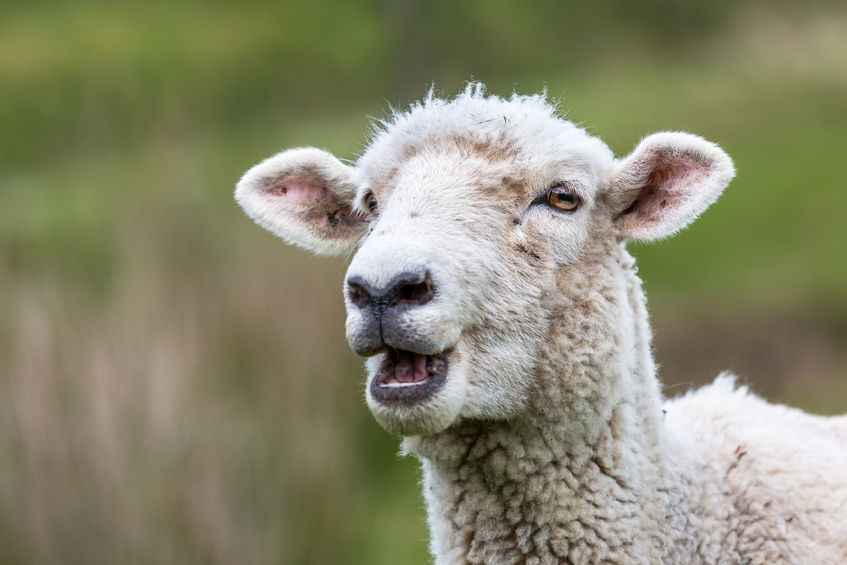
Sheep can be trained to recognise human faces from photographic portraits – and can even identify the picture of their handler without prior training – according to new research.
Scientists at the University of Cambridge have shown that sheep have advanced face-recognition abilities, comparable with those of humans and monkeys.
The study, published on Wednesday (8 November) in the journal Royal Society: Open Science, is part a series of tests given to the sheep to monitor their cognitive abilities.
Previous studies had shown that sheep could identify other sheep and human handlers that they already knew. Little is known, however, about their overall ability to process faces.
Researchers trained eight sheep to recognise the faces of four celebrities (Fiona Bruce, Jake Gyllenhaal, Barack Obama and Emma Watson) from photographic portraits displayed on computer screens.
Training involved the sheep making decisions as they moved around a specially-designed pen. At one end of the pen, they would see two photographs displayed on two computer screens and would receive a reward of food for choosing the photograph of the celebrity.
If they chose the wrong photograph, a buzzer would sound and they would receive no reward. Over time, they learn to associate a reward with the celebrity’s photograph.
Face task
After training, the sheep were shown two photograph – the celebrity’s face and another face. In this test, sheep correctly chose the learned celebrity face eight times out of ten.
In these initial tests, the sheep were shown the faces from the front, but to test how well they recognised the faces, the researchers next showed them the faces at an angle.
As expected, the sheep’s performance dropped, but only by about 15% - a figure comparable to that seen when humans perform the task.
Finally, the researchers looked at whether sheep were able to recognise a handler from a photograph without pre-training.
The handlers typically spend two hours a day with the sheep and so the sheep are very familiar with them. When a portrait photograph of the handler was interspersed randomly in place of the celebrity, the sheep chose the handler’s photograph over the unfamiliar face seven out of ten times.
'Double take'
During this final task the researchers observed interesting behaviour. Upon seeing a photographic image of the handler for the first time – in other words, the sheep had never seen an image of this person before – the sheep did a 'double take'.
The sheep checked first the unfamiliar face, then the handler’s image, and then unfamiliar face again before making a decision to choose the familiar face, of the handler.
“Anyone who has spent time working with sheep will know that they are intelligent, individual animals who are able to recognise their handlers,” says Professor Jenny Morton, who led the study.
“We’ve shown with our study that sheep have advanced face-recognition abilities, comparable with those of humans and monkeys.”
